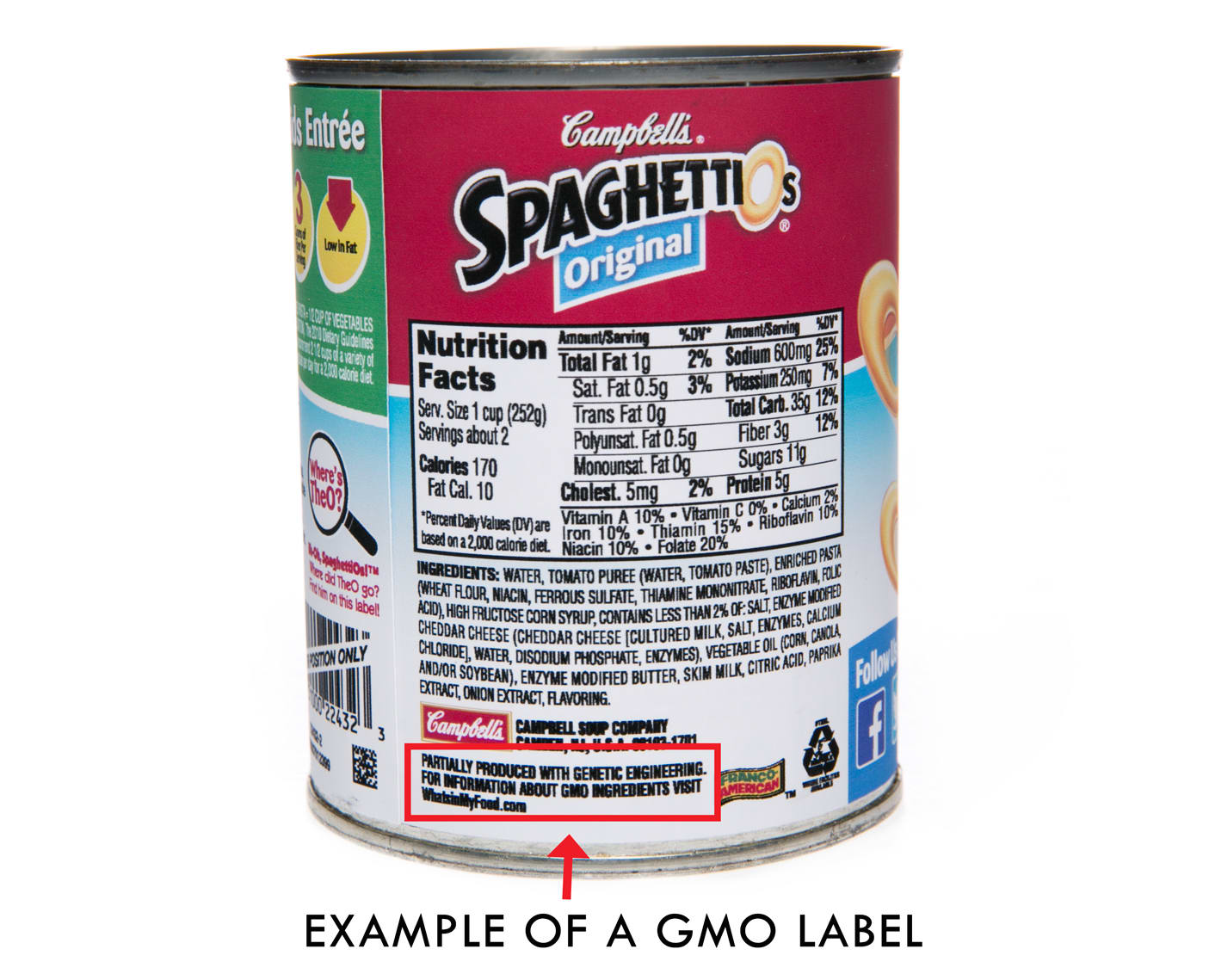
This is how Campbell’s GMO-containing are labeled in Vermont. The language used on its eventual nationwide label may end up being different.
About 75% of Campbell’s products — in addition to its namesake soups, Campbell also makes brands like Pepperidge Farm, Bolthouse Farms, Arnott’s, V8, Swanson, Pace, Prego, among others — use ingredients made from corn, canola, sugar beets, or soybeans. Almost all of the farmers producing those crops in the U.S. use GMO seed.
So for a company like Campbell, there’s no way it can simply stop using GMO ingredients and still produce the quantity of product that its customers demand. In fact, the company has no intention to make such a change because it maintains that GMOs have been repeatedly proven safe and that they may be needed to meet the increased demand for food around the globe.
“I want to stress that we’re in no way disputing the science behind GMOs or their safety,” explains Campbell CEO Denise Morrison. “The overwhelming weight of scientific evidence indicates that GMOs are safe and that foods derived from crops using genetically modified seeds are not nutritionally different from other foods.”
So if Campbell contends that GMOs are safe and necessary, why does it support nationwide mandatory labeling? Because 9-in-10 consumers want to at least know whether the foods they eat contain these ingredients.
Campbell cites that figure — from a survey conducted by our colleagues at Consumer Reports — as evidence that American consumers have a desire for more transparency from the companies that produce their food.
“We are operating with a ‘Consumer First’ mindset,” says Morrison. “We put the consumer at the center of everything we do. That’s how we’ve built trust for nearly 150 years. We have always believed that consumers have the right to know what’s in their food.”
Campbell has fought state-level GMO labeling requirements in California and Oregon, arguing that labeling regulations that vary from state to state create a patchwork that is too complex and costly for large food producers to deal with. Instead, it believes that a national GMO labeling standard would be best for everyone.
“We now believe that proposing a mandatory national solution is necessary,” says Morrison. “Printing a clear and simple statement on the label is the best solution for consumers and for Campbell.”
Campbell currently labels its products sold in Vermont like the soup can shown above. Below the ingredients list, it includes a disclosure stating something like “Partially Produced With Genetic Engineering,” directing consumers to its whatsinmyfood.com site for more information, including a list of the various GMO ingredients it uses across its range of products.
The company tells the NY Times that it will be working with the FDA and other regulators to craft the language for standard, nationwide GMO label for its products.
Jean Halloran, Director of Food Policy Initiatives for Consumers Union, applauded today’s announcement.
“Campbell Soup has taken an immense step forward today. Their decision to disclose which of its ingredients are genetically engineered will give consumers the information they want and deserve, even going beyond what’s required in Vermont’s labeling law,” says Halloran.
A similar sentiment was voiced by Connecticut Senator Richard Blumenthal.
“Campbell’s decision to add GMO labeling to their products is a courageous, commendable act of pro-consumer leadership,” said Blumenthal in a statement. “This commonsense decision by Campbell’s – and all of Campbell’s brands, including the iconic Connecticut company Pepperidge Farm – will enable consumers to make informed decisions about the food they and their families eat.”
Editor's Note: This article originally appeared on Consumerist.
















